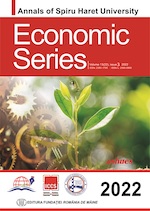Determinants of Forensic Accounting Techniques and Theories: An Empirical Investigation
Determinants of Forensic Accounting Techniques and Theories: An Empirical Investigation
Author(s): Godwin Emmanuel OyedokunSubject(s): Financial Markets, Accounting - Business Administration
Published by: Editura Fundaţiei România de Mâine
Keywords: Forensic accounting; Forensic engagement; Forensic accounting techniques; Forensic theories;
Summary/Abstract: This study sought and investigated the determinants of forensic accounting techniques. The data analysed in this study were gathered from both primary and secondary sources. The 120 respondents were purposively selected, which includes forensic accountants, fraud auditors, bankers, forensic investigators, finance enthusiasts, fraud investigators, and those in academia. The data for this study were gathered electronically using an online questionnaire through Google Form. The Google Form analysis was adopted. Secondary data were the existing data, established by seasoned professionals and academics. The data were presented through pie charts, bar chats, and descriptions. The study shows that the nature of fraud under investigation which includes the level of crime perpetrated, how much involved, stages, complexity, and who is involved are the determinant of techniques to be applied to fraud examination. Also, other factors such as criminal evidence, the expertise and experience of the examiner, organisational policies, and the risks involved determine what techniques to be applied to forensic investigations. Data mining emerged as the most appropriate technique for fraud investigation, however, the combination of two or more techniques is advised for forensic accountants, forensic legal practitioners, and all other similar parties. This study recommends the need for stakeholders to engage, recruit, and employ the services of a forensic accountant to review, strengthen, reappraise records and internal control systems on a routine basis; Organisations should train employees on the dynamics and scope of financial crimes, the legal environment, fraud prevention, and ethical issues.
Journal: Annals of Spiru Haret University. Economic Series
- Issue Year: 22/2022
- Issue No: 3
- Page Range: 317-337
- Page Count: 21
- Language: English

